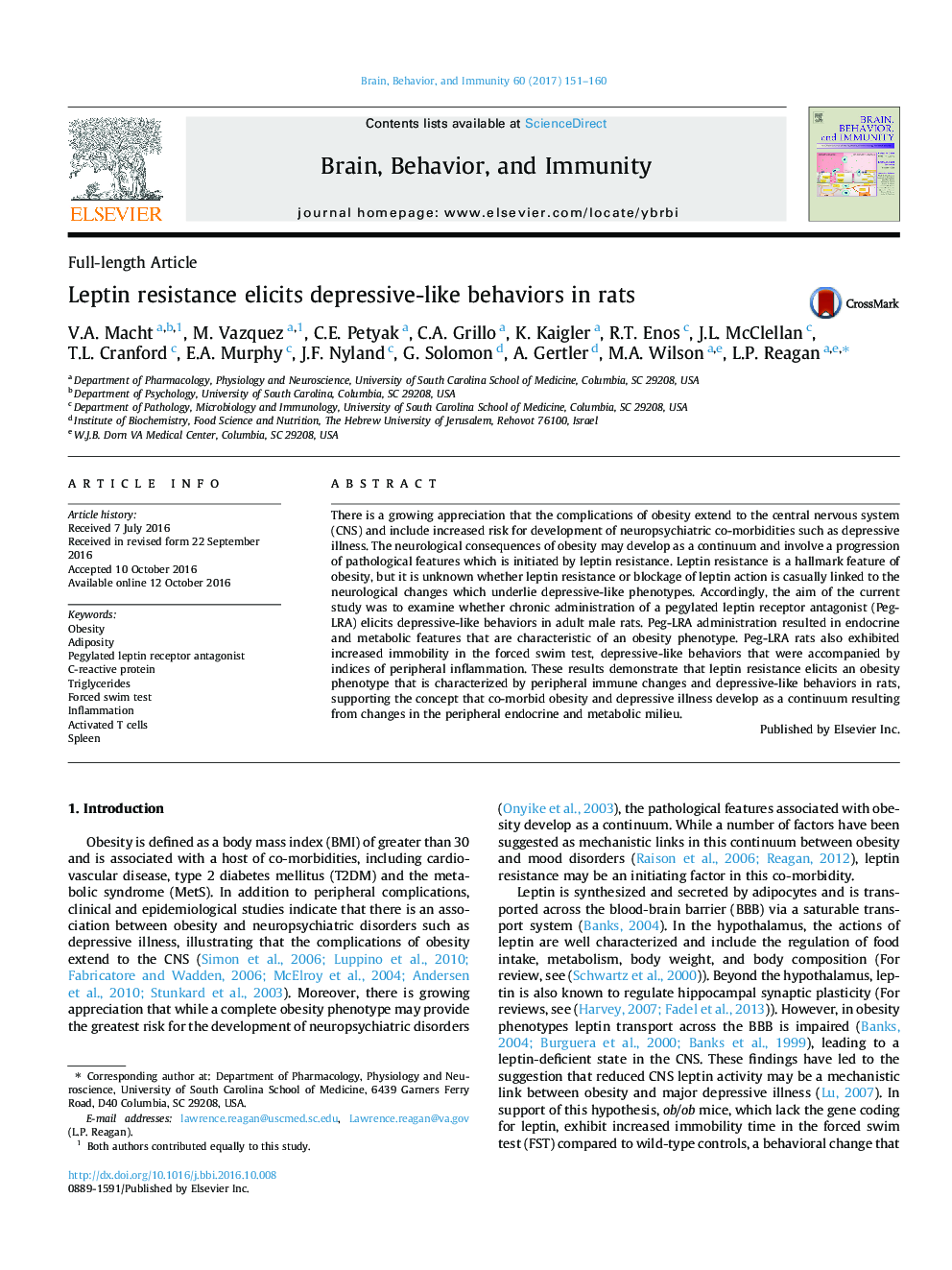| Article ID | Journal | Published Year | Pages | File Type |
|---|---|---|---|---|
| 5040745 | Brain, Behavior, and Immunity | 2017 | 10 Pages |
â¢Pegylated leptin receptor antagonist (Peg-LRA) induced leptin resistance.â¢Peg-LRA elicited behavioral despair in the forced swim test.â¢Peg-LRA-treated rats exhibited increases in plasma cytokine levels.â¢Peg-LRA elicited an increase in activated pro-inflammatory peripheral immune status.
There is a growing appreciation that the complications of obesity extend to the central nervous system (CNS) and include increased risk for development of neuropsychiatric co-morbidities such as depressive illness. The neurological consequences of obesity may develop as a continuum and involve a progression of pathological features which is initiated by leptin resistance. Leptin resistance is a hallmark feature of obesity, but it is unknown whether leptin resistance or blockage of leptin action is casually linked to the neurological changes which underlie depressive-like phenotypes. Accordingly, the aim of the current study was to examine whether chronic administration of a pegylated leptin receptor antagonist (Peg-LRA) elicits depressive-like behaviors in adult male rats. Peg-LRA administration resulted in endocrine and metabolic features that are characteristic of an obesity phenotype. Peg-LRA rats also exhibited increased immobility in the forced swim test, depressive-like behaviors that were accompanied by indices of peripheral inflammation. These results demonstrate that leptin resistance elicits an obesity phenotype that is characterized by peripheral immune changes and depressive-like behaviors in rats, supporting the concept that co-morbid obesity and depressive illness develop as a continuum resulting from changes in the peripheral endocrine and metabolic milieu.
